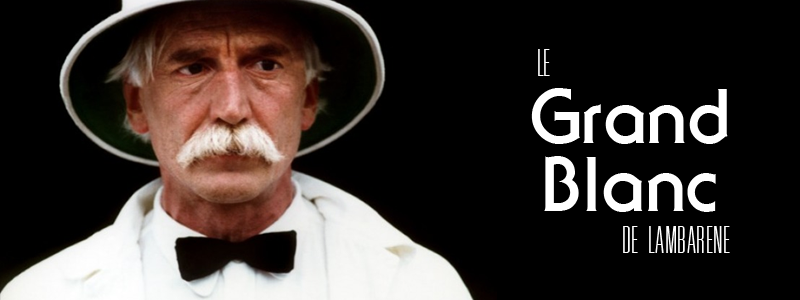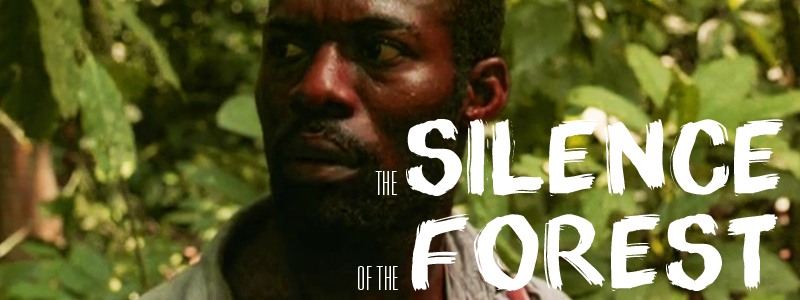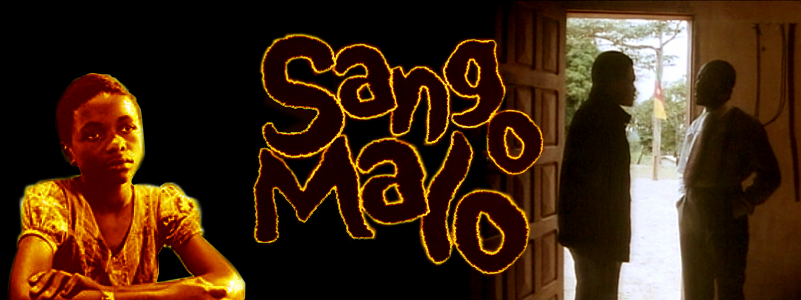After colonialism, the tidal wave of African independence (starting in Ghana in 1949, ending in South Africa in 1994) produced optimism and elation across the continent. A handful of filmmakers used the medium to promote pan-Africanism and tear open old wounds from white oppression. But Cameroonian novelist and filmmaker Bassek ba Kobhio stands in stark contrast to these trends: his three-film catalog navigates the tricky waters of postcolonial hope, beautifully embodying both the supernova of African freedom and the bitter hangover of best laid plans.
Special thanks to California Newsreel
SANGO MALO
Dir: Bassek ba Kobhio, 1990.
89 min. Cameroon.
In French with English subtitles.
TUESDAY, APRIL 9TH – 7:30PM
TUESDAY, APRIL 23RD – 7:30PM
Ba Kobhio’s debut film is a post-independence classic on the logjam of village and city mores and the ever-elusive definition of “education”.
The crux of Sango Malo is a steady disagreement between Malo (a radical young teacher) and his “Eurocentric” headmistress. At the end of the day, defining education means defining responsibility – and by defining the villagers’ responsibilities from the outside, the supposedly enlightened mode of African being is called into question.
The director pins down root causes of post-independence prejudices- including prejudice against oneself- in a doggedly clear-headed but ultimately warm, humanist fashion, regularly inviting viewers to laugh along at the film’s varying strains of misguidedness.
“Offers a valuable look at the harsh realities of village life in a little-seen land. The director shines with a lively script and complex characters.” – Variety
“A wonderful script full of scenes of sparkling lightness and humor.” – Cahiers du Cinema

LE GRAND BLANC DE LAMBARENE
Dir: Bassek ba Kobhio, 1995.
94 min. Cameroon/Gabon.
In French with English subtitles.
THURSDAY, APRIL 4TH – 7:30PM
THURSDAY, APRIL 18TH – 10PM
“The independence of the people has never been your concern. You only wanted to share their hell in the hope of reaching your heaven.”
Albert Schweitzer – the world’s first superstar humanitarian – gets a rare biographical dissection in what is arguably Bassek ba Kobhio’s angriest film.
Schweitzer established a missionary hospital on the banks of the Ogooué river in present-day Gabon, a post he maintained until his death (just after the country achieved independence.) Surrounded by European nurses and African patients, Schweitzer controls his public image with an iron fist. But rather than making him an outright monster, the film works overtime to clarify his point of view, stressing a paternalism that can only come from an unrequited longing for worldliness.
Ba Kobhio filmed Le Grand Blanc on the actual site of Schweitzer’s mission, and as “the great white man” feels African opinion turning against him, he brokers a deal with the local chiefs that throws his hypocrisy into plain daylight. With a jarring sense of comedic timing and an overwhelming fidelity to the terrain and mood of Gabon, ba Kobhio comes out swinging, redrawing African independence as the consequence of – rather than a solution to – Western meddling.
“Gripping, vast, animated, with something profoundly magical… In Le Grand Blanc, the cinema truly meets Africa.” – Le Nouvel Observateur
“Challenging. Period detail is painstakingly recreated to present an utterly unromantic view of colonial Africa.” – Variety
“Though the subject is in the past, the filmmaker succeeds in describing today’s Africa of humanitarian NGOs and voluntary doctors of which Schweitzer was, unwittlingly, the forerunner.” – Ecrans d’Afrique

THE SILENCE OF THE FOREST
Dir: Bassek ba Kobhio & Didier Ouénangaré, 2003.
93 min. Cameroon/Central African Republic/Gabon.
In French/Diaka/Sango with English subtitles.
FRIDAY, APRIL 12TH – 7:30PM
FRIDAY, APRIL 26TH – 10PM
“I can already see the day when I can triumphantly say: ‘Look what I did for this country.’”
ba Kobhio’s most recent work is a bittersweet interrogation of the limits of good intentions, even when native Africans seek to “develop” their countries’ human potential. Gonaba (Eriq Ebouaney, Lumumba) returns from France to his homeland in the Central African Republic with a degree and a cushy government post, but soon finds himself incapable of bringing about the changes in society he promised himself and his “pygmy” neighbors. His search for “authenticity” of culture in the forest’s tribes sees him re-enacting the same mistakes of the long-gone white occupiers, with dire implications.
Native traditionalism vs. throwback “traditionalism” vs. Western-led interventionism: if the flurry of quotation marks didn’t give it away, words come up short on impact inThe Silence of the Forest.
Scored by legendary jazz musician Manu Dibango, this is a singular movie so beautifully textured and dense with post-colonial theory that it invites viewers to sniff out the political substance of every stone or raindrop. Amidst a debate dominated by Invisible Children and the World Bank, ba Kobhio and Ouénangaré’s film stands as a work of supreme heartbreak. This is not your mother’s Central African Republic.

